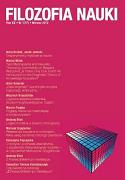Logika modalna a dowód ontologiczny
Modal Logic vs. Ontological Argument
Author(s): Andrzej BiłatSubject(s): Philosophy
Published by: Uniwersytet Warszawski - Wydział Filozofii i Socjologii, Instytut Filozofii
Keywords: ontological argument; modal logic; Anzelm’s Axiom; Leibniz’s Axiom
Summary/Abstract: The contemporary versions of the ontological argument originated from Charles Hartshorne are formalized proofs (in the metalogical sense of the word) based on unique modal theories. The simplest well-known theory of this kind arises from the system B of modal logic by adding two extra-logical axioms: (AA) “If the perfect being exists, then it necessarily exists” (Anselm’s Axiom) and (AL) “It is possible that the perfect being exists” (Leibniz’s Axiom). In the paper a similar argument is presented, however none of the systems of modal logic is relevant to it. Its only premises are the axiom (AA) and, instead of (AL), the new axiom (AN): “If the perfect being doesn’t exist, it necessarily doesn’t”. The main goal of the work is to prove that (AN) is no more controversial than (AA) and — in consequence — the whole strength of the modal ontological argument lays in the set of its extra-logical premises. In order to do that, three arguments are formulated: ontological, “cosmological” and metalogical.
Journal: Filozofia Nauki
- Issue Year: 20/2012
- Issue No: 1 (77)
- Page Range: 103-108
- Page Count: 6
- Language: Polish

